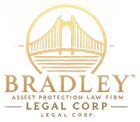In today’s digital age, where privacy is increasingly elusive, many individuals are exploring the effectiveness of legal structures such as Limited Liability Companies (LLCs) and land trusts to keep their names off public records and protect their assets. But can these strategies truly help you “vanish” from legal scrutiny? Are these the best legal asset protection strategies? In this comprehensive guide, we’ll explore how LLCs and land trusts work, their pros and cons, and the realities of preserving privacy versus securing asset protection.
Understanding LLCs and Land Trusts
What is an LLC?
A Limited Liability Company (LLC) is a popular business structure that provides some personal liability protection to its owners (members). By forming an LLC, your personal assets are generally shielded from lawsuits targeting the company, which adds an essential layer of financial protection. Additionally, some LLCs allow for anonymous ownership, particularly in states like Wyoming where privacy protections are stronger.
What is a Land Trust?
A land trust is a legal entity designed to hold title to real estate on behalf of its beneficiaries. This arrangement means the property’s ownership is not publicly recorded under an individual’s name, thereby protecting privacy.
How LLCs and Land Trusts Work Together
Combining an LLC with a land trust allows individuals to obscure their personal names from property public records, creating a dual-layer privacy strategy. However, it is crucial to differentiate between privacy measures and effective asset protection.
The Illusion of Disappearing
Many individuals mistakenly believe that by creating an anonymous Wyoming LLC or using a land trust, they can simply “poof” away from legal problems. However, this is a common misconception. Let’s examine the reality.
Lawsuits and Discovery
When you are involved in a lawsuit, the legal discovery phase begins — a process where both parties exchange relevant information before trial. Understanding this phase is essential for recognizing how an anonymous LLC may be challenged.
1. Service of Process: Upon the filing of a lawsuit, you will receive a service of process, officially notifying you of the suit and your obligation to respond. If you are a member of an LLC, this service will likely be directed to the LLC’s registered agent, but you will still need to answer.
2. Interrogatories and Requests for Production: Plaintiffs may send written questions (interrogatories) aimed at uncovering details about the ownership and operation of the LLC. You must answer these truthfully under oath, with penalties for non-compliance.
3. Subpoenas: If a plaintiff suspects that your LLC is being used to hide assets, they can issue a subpoena, compelling you to produce financial records or testify regarding your assets.
4. Depositions: You may be deposed, where you will be questioned under oath by the opposing attorney. You could be directly asked about your relationship with the LLC and land trusts, making it crucial to remain truthful.
5. Ultimate Disclosure: In many cases, courts can compel asset disclosure, meaning your attempts to maintain privacy can easily unravel under legal scrutiny.
The reality is that while anonymity may seem appealing, your personal association with the LLC makes you the “weak link” in asset protection.
Preference for Full Disclosure of Assets
We advocate for full disclosure of assets when legally required. Being transparent can enhance credibility and aid in legal defenses. Rather than hiding behind anonymity, the focus should be on establishing a robust, well-structured asset protection plan.
Situations Where Privacy Might Work
While it is critical to approach asset protection transparently, there are instances—like a shotgun lawsuit —where the plaintiff’s attorney may indiscriminately target potential defendants. In such cases, if the attorney does not perform in-depth due diligence, an LLC and land trust might provide temporary protection. However, this is not the norm, as most law firms conduct rigorous investigations prior to filing a lawsuit.
Privacy vs. Asset Protection
While maintaining privacy is important, it’s essential to remember: Privacy is fine, but secrecy and hiding are not. The primary goal should be efficient asset protection. Privacy can be a beneficial byproduct when robust protection measures are in place.
Pros and Cons of LLCs and Land Trusts for Privacy and Asset Protection
Pros:
1. Enhanced Privacy: Your name may not appear on public property records, making ownership harder to trace.
2. Operational Flexibility: LLCs offer various operational advantages for business owners.
3. Asset Separation: LLCs can protect personal assets from business-related liabilities.
Cons:
1. Limited Asset Protection: LLCs may protect against business liabilities, but not personal legal issues. A land trust alone does not provide asset protection.
2. Potential for Public Scrutiny: Courts can compel disclosure of beneficial owners during litigation.
3. Costs and Complexity: Maintaining LLCs and land trusts entails costs and compliance with legal formalities.
Conclusion
In summary, using LLCs and land trusts can indeed help you keep your name off public records, enhancing your privacy significantly. However, these tools should not be viewed as foolproof mechanisms to evade legal scrutiny or asset inquiries.
Understanding the difference between privacy and asset protection is crucial. Consider speaking with a legal expert specializing in asset protection strategies to ensure that both privacy and protection can be achieved in an ethically compliant manner. By laying a solid foundation for asset protection, you will not only enhance privacy but also foster a more secure financial future.
Call today for a legal consultation with an asset protection lawyer at (888) 773-9399
By: Brian T. Bradley, Esq.




